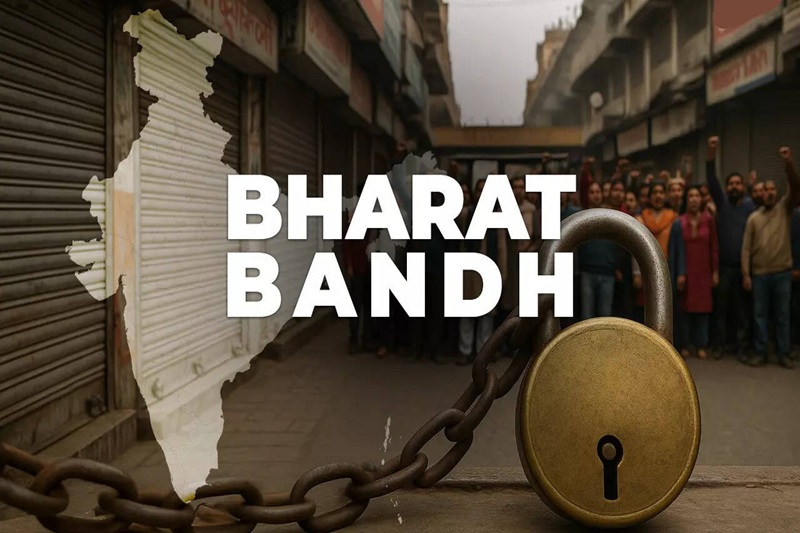
(C): Twitter
A nationwide general strike ‘Bharat Bandh’ will be taking place on July 9, with over 25 crore workers from various sectors expected to participate. The strike will be organized by a joint forum of ten central trade unions and is a response to government policies that unions have labelled as anti-worker, anti-farmer and pro-corporate.
Which Services Are Likely to Be Disrupted?
The strike is expected to affect critical services like:
Banking and Insurance.
Postal Services.
Coal Mining and Steel.
State Transport and Highways.
Construction and Public Sector Undertakings.
Amarjeet Kaur (AITUC) and Harbhajan Singh Sidhu (HMS) have warned that urban and rural services will be affected.
Why Are Workers Striking?
The unions formally forwarded a 17-point demand to the Labour Ministry last year, based on rising job losses, wage cuts, inflation and the weakening of labour rights. They are protesting the enforcement of four new labour codes that they argue weaken collective bargaining, extend work hours, and protect employers from legal consequences.
Who Is Supporting the Strike?
Support has gone beyond just trade unions. The Samyukta Kisan Morcha, along with rural workers’ organisations, announced massive support and participation in the protest particularly in agrarian parts of the country.
What’s at Stake?
Union leaders claim that existing policies actively encourage privatisation, outsourcing and casualisation, threatening our employment opportunities particularly for youth. As unions have not been able to hold an annual labour conference for 10 years, they view this strike as a significant stand for workers’ rights.
As India gears up for the Bharat Bandh, there will be massive service disruptions all over the country.







